As IranWire has reported, hundreds of Iranians have sustained severe eye injuries after being hit by pellets, tear gas canisters, paintball bullets or other projectiles used by security forces amid a bloody crackdown on mainly peaceful demonstrations. Doctors say that, as of now, at least 580 protesters have lost one or both eyes in Tehran and in Kurdistan alone. But the actual numbers across the country are much higher. The report concluded that such actions by the security forces could constitute a “crime against humanity,” as defined by Article 7 of the Rome Statute.
IranWire has explored this question more deeply in an interview with Professor Payam Akhavan, a prominent human rights lawyer, special advisor to the Prosecutor of the International Criminal Court and a former member of the Office of the Prosecutor of the International Criminal Tribunal for the Former Yugoslavia.
IranWire is aware of more than 50 serious eye injuries sustained by protestors and bystanders over the past five months. With the help of independent ophthalmologists, we have reviewed the medical records of around a dozen individuals and compiled a comprehensive medical report.
In the series of reports “Blinding as a Weapon,” IranWire presents the victims’ stories told in their own words. Some have posted their stories, along with their names and pictures, on social media. Others, whose real names shall not be disclosed to protect their safety, have told their stories to IranWire, which can make their identities and medical records available to international legal authorities and the United Nations Special Rapporteur on the situation of human rights in the Islamic Republic of Iran.
This is the story of Seyed Matin Manani, a young man of 25 who lost both eyes in the early days of the 2022 protests. He is one of the few victims of the security forces who have lodged a complaint with the Iranian judiciary as a way to continue the fight.
***
The first protests rocked Sari, capital of the northern province of Mazandaran, on September 20, 2022. Matin was at the entrance to Sabzeh Meydan Park when security agents attacked the protesters. Matin was trying to escape when the security agents shot at him.
Matin lost both eyes. His face, arms, chest and body were filled with pellets. After reviewing his medical records, experts said that he must have been shot from both sides.
For more than six months, the doctors have tried to remove the pellets from his body and treat his eyes, but many projectiles remain in his body, his hands still ache and he is blinded in both eyes.
Matin was a part-time university student. His father is a veteran of the Iran-Iraq war in the 1980s who worked as a house painter until an accident forced him to retire. Before the shooting, Matin and his brother Mobin were the family’s breadwinners, but now, after losing both eyes, it is impossible for the young man to work and to complete his studies.
There are still two pellets lodged near the blood vessels to his brain, but the doctors have decided that it is safer to let them stay where they are. More pellets also remain in his hands and chest.
Complaint with the Judiciary
In an interview with the newspaper Shargh, Majid Kaveh, the lawyer who represents Matin, reported that his complaint has been registered with the Public and Revolutionary Prosecutor’s Office in Sari. He said he had asked the court to conduct a comprehensive review of Matin’s medical records and take legal action against his assailant or assailants and order the payment of blood money to the young man as compensation.
This year, the highest sum of blood money awarded by a court to a person was 900 million tomans, but the amount depends on variables such as gender. Some of the security forces’ victims who have filed complaints say that they are not seeking money.
“I don't need money,” one of them tells IranWire. “I am even aware that I might not get anywhere in court, but challenging the judiciary is important to me. For me, it’s like continuing the fight. Through this same judiciary establishment, I want to show that I am not retreating.”
IranWire's legal adviser Musa Barzin Khalifehlou says that the victims can at most be awarded blood money because, even if the assailant is identified, he would not accept that he has willfully targeted the eyes.
However, according to Article 290 of the Islamic Penal Code, acts such as shooting at a crowd is considered an “intentional” crime, even if no specific person is targeted. Provision A of this article states that the perpetrator’s act is intentional if the perpetrator has deliberately acted to commit a crime “against a specific or non-specific person or a person in a gathering of people.” And Provision B states: "if the perpetrator commits an action intentionally and it typically leads to a crime or the like, although he did not intend to commit the crime and the like, he was aware that the action can typically lead to a crime or the like."
“Even if you disregard Provision A, shooting at protesters’ eyes undoubtedly falls under Provision B, and it is a crime,” Khalifehlou says. “Jurists believe that such shootings are intentional and the punishment is qisas (retaliation in kind); but even if qisas is dismissed, blood money and prison still apply. But of course nobody would confess that he has fired willfully.”
According to Article 614 of the Islamic Penal Code, “Anyone who commits an assault and battery against someone else that results in damaging or breaking or disabling a victim’s limb or causes him a permanent illness or defect or loss of a sense or ability or loss of mind, in cases where qisas is not possible, if his act disrupts public order and the safety of the society or it is thought that it emboldens the offender or others [to commit assault again], he shall be sentenced to two to five years’ imprisonment; and if the victim applies for it, shall be sentenced to diya (blood money) as well.”
However, if the court decides that shooting at the protesters’ eyes is “quasi-intentional,” the shooter would be sentenced to pay blood money but would not be given any prison sentence.
If a woman is maimed, she would receive only half of the sum that a man would be entitled to in a similar situation.
A provision to Article 551, passed in 2012, states: “In all crimes, when the victim is not a man, the difference between the blood money [awarded] and the maximum payable to men, will be paid by the Physical Damage Fund.” Whether this law would apply to those who have lost their eyes during recent protests is not clear.
Who Can Lodge A Complaint?
Asking for redress and justice from the judiciary is the legal right of all Iranians, at least as far as filing the paperwork goes. In some cases, however, the plaintiff can come out as the loser. For example, as Khalifehlou says, if the plaintiff has committed an act of violence and there is evidence such as a video recording to prove it, lodging a complaint might put them in danger.
There are others who have been forced to sign commitment letters, giving up their right to file a complaint or to speak about the crime that has been committed against them. However, as Khalifehlou says, such commitment letters are not legally valid “because they are not considered confessions to a crime. “Forcing people to sign a commitment letter is meant to intimidate them. People who have signed such letters are much less in danger than those who have been charged with a crime or who have committed an act for which evidence exists,” he adds.
The lawyer suggests that the families of those who have been injured should immediately take action to gather evidence from CCTVs that do not belong to the government, such as surveillance cameras in shops.
Why Is Lodging a Complaint Important?
Khalifehlou points out that, according to the 1994 code on the use of firearms by Iranian armed forces, the agents cannot immediately use firearms to suppress a crowd. They must first warn people, then they can use things like teargas, pepper spray and tasers and, as the last resort, they can use firearms.
But as testimonies by protesters, reports and videos show, the security forces have started firing at people at the beginning of confrontations.
Considering the uncertain prospects of success of complaining to the judiciary, a victim might ask: Why lodge a complaint?
Many victims desperately need money for their medical treatments, but there are other considerations.
“More than anything else, demanding justice and challenging the judiciary is a way to continue the fight in a non-violent way,” says Khalifehlou. “Then, we need to document violations of human rights. But something that might interest this group of victims is following up these complaints at international tribunals and organizations when actions inside the country don’t lead anywhere.”
“The other point is the increase in the volume of evidence. When the judiciary is challenged and dozens of complaints are lodged, judiciary officials cannot simply ignore them. In any case, in some branches of the judiciary there are people who do follow up on complaints.”
“Suppose a person lodges a complaint and claims that he has lost an eye,” says Khalifehlou.
“The judge writes a letter to the forces of law and order and they reply. Then the case goes to Iran’s Legal Medicine Organization and they reply as well. Records of these follow-ups are important documents that register violations of human rights, and, eventually, they might lead to more sanctions or to the expulsion of the Islamic Republic from human rights commissions. These documents are very important for the UN fact-finding commission.”
The lawyer points out that if enough complaints are lodged in various provinces of Iran, they can serve as evidence for international organizations that shooting at the protesters’ eyes has been a systematic policy: “The usual question is this: Why do you talk of law when we’re at war? I must say that these two are not incompatible. I’m not saying that you should not go to the street and just file complaints. Go to the streets and sue as well. It does not cost much. Lodging a complaint is a continuation of the fight but at another level.”
visit the accountability section
In this section of Iran Wire, you can contact the officials and launch your campaign for various problems












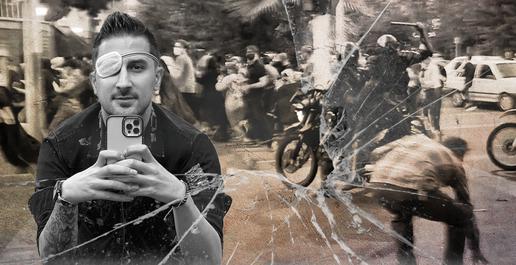
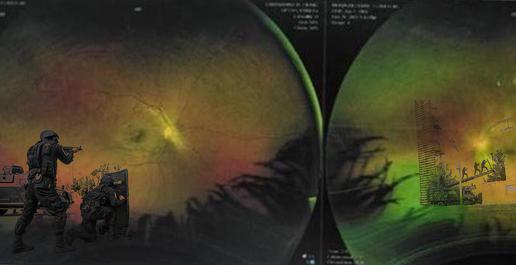
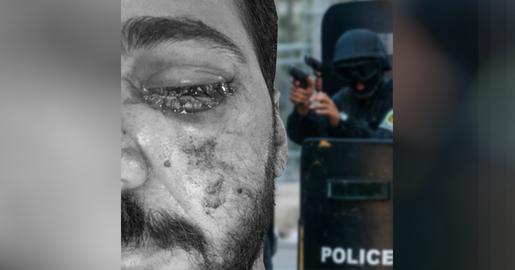

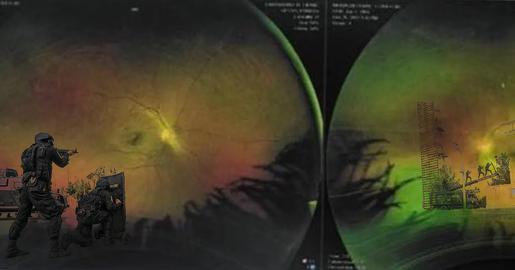
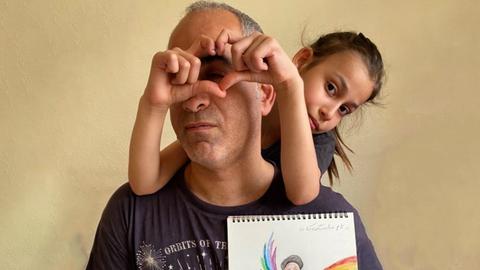
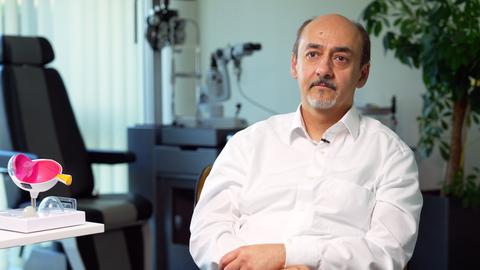


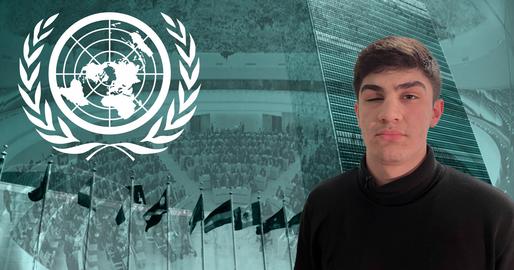


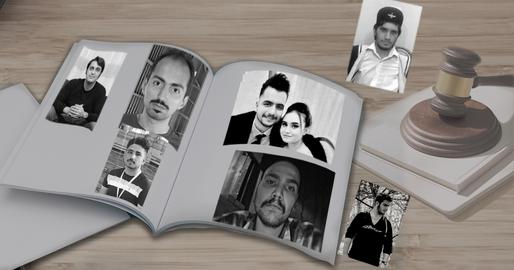
comments